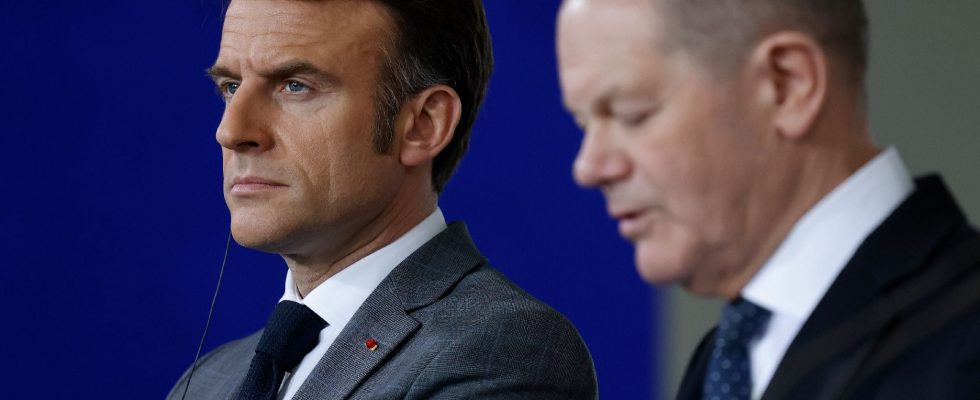In his interview with L’Express, the President of the Republic rightly highlights Germany’s economic difficulties. There is indeed something anachronistic in the German industrial model. For a long time, our neighbor derived its prosperity from an export industry, oriented towards China, sourcing Russian carbon energy. The competitive advantage of its companies came from controlled labor costs and a seemingly limitless capacity to improve processes: incremental innovation rather than radical innovation.
From a geopolitical point of view, its pacifism led Germany to adopt a neutral posture, “like Switzerland”, and to have its protection ensured by the United States, even if it meant preferring its military equipment to European equipment. If we look rationally at each of the terms of the above, nothing works anymore. As essayist David Baverez explains (Welcome to the war economy!, Novice, 2024), the cycle of happy and peaceful globalization opened in 1989 with the fall of the Berlin Wall, to which Germany had remarkably adapted, ended in 2022 with the invasion of Ukraine by Russia but also, a crucial and often forgotten point, the 20th Congress of the Chinese Communist Party which saw the iron hand of Xi Jinping close on the country – and its economy. In fact, the Chinese private sector is no longer progressing but Chinese mid-range industry is more competitive than ever.
Faced with the need to build a European defense, to decarbonize its economy or to invest in artificial intelligence and quantum computing, the German economic and geopolitical discourse of the 1990s-2000s is largely beside the point, there where French voluntarism and creativity suddenly seem more suited to the events.
The French speech towards Germany is therefore the right one. But is our country credible to hold it and involve its neighbors in what is often seen in Europe as romantic adventurism? That’s the whole point. Intellectualism and oratory, two undeniable French qualities, are not sufficient to take a position of central influence in Europe, and to encourage our partners to build a European defense industry capable of meeting our own military needs. If we analyze the economic functioning of France and Germany, two major differences, which are to the advantage of the latter, are obvious and undermine our credibility: employment and public finances.
A much higher activity rate across the Rhine
It is known that the unemployment rate has fallen significantly in France since 2016, going from 10.5% to 7.5% of the active population. At the same time, the youth unemployment rate fell from 24.5% to 17.5%. The improvement is significant. Note, however, that across the Rhine, these two figures stand at 3% and 5.5% respectively. The most significant differences concern employment rates. In France, 66.6% of the adult population works. This ratio is 77.8% in Germany, 10 points more. The difference is colossal and is largely explained by the gap in the employment rate of 55-64 year olds. 57.5% of them work in France compared to 75% in Germany, a gap of almost 20 points!
This relative French underperformance explains the poor comparative figure for our public finances: a public debt of 110% of GDP here, 63.5% there. With such an employment rate for seniors, Germany avoids the underfinancing of its pay-as-you-go pension and at the same time increases its growth potential, and therefore its social and tax revenues.
The President of the Republic is calling for a doubling of European budgetary capacity for investment, in particular by increasing our common debt. The idea can be defended, even if there are other ways to boost our economy than going into a little more debt. European parliamentarians and the Commission could, for example, try to moderate their normative passion, a real brake on innovation at a time when American companies are pressing hard on the accelerator.
In any case, the Germans will be reluctant to pool their debt with ours until we have shown a little seriousness in matters of public finances. And as much as France is making progress on certain subjects, on this one we remain bad and not very credible.
.
